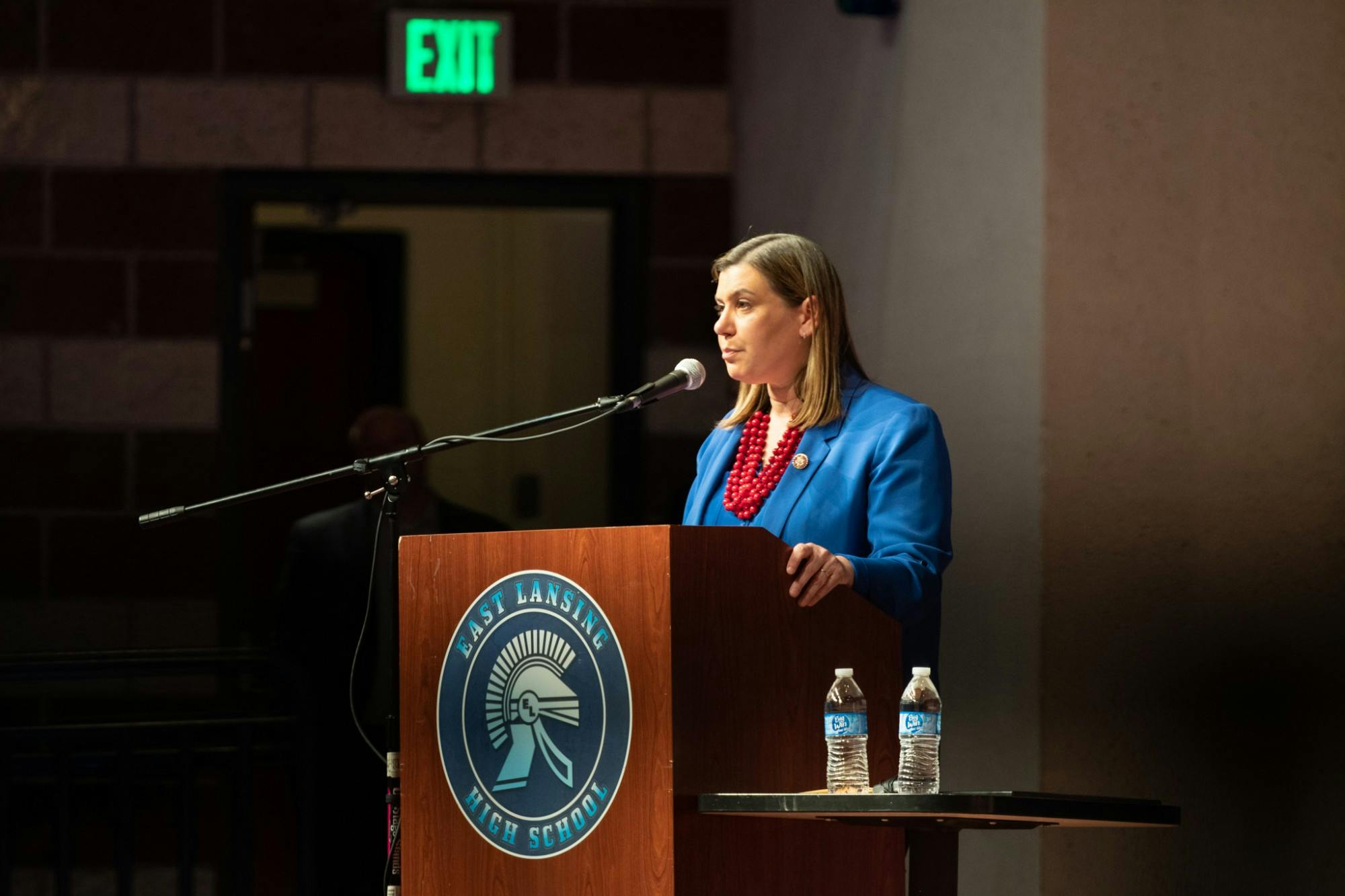Rep. Elissa Slotkin and Paul Junge took the stage during their first debate Tuesday as congressional candidates for the 8th District of the U.S. House of Representatives to talk about policies, partisanship and COVID-19 relief.
Slotkin defeated two-term incumbent Mike Bishop and took the 8th District seat in 2018, flipping the district from Republican to Democrat. She has an extensive background in national service and security, including experience with the CIA and other defense and intelligence positions under Presidents Bush and Obama.
During the debate, Slotkin identified her biggest strength as her integrity and how she speaks truth to power. In regard to what she thinks her biggest weakness is, she said her background in national security has given her a difficult time in adjusting to the culture of Congress.
Paul Junge, on the other hand, has defeated three other Republican candidates in the August primary — he received nearly 40% of the vote — and is making an attempt to move into the legislature after spending time as a deputy district attorney in the domestic violence unit.
Junge also worked in the Trump administration in the U.S. Citizens and Immigration Services. He identified his greatest strength as being a good listener, citing his experience as a television reporter and attorney.
As for his greatest weakness, Junge said he has too much enthusiasm and wants to jump right into projects, but said he intends to really listen in an attempt to counter this.
While the candidates agreed on a variety of topics — including the safety and security of absentee voting and opposition to the abolishment of the payroll tax — they sparred over partisanship throughout the debate.
Discussions of partisanship began after Slotkin addressed a smear ad from the Junge administration that she alleged contained misinformation and misrepresentations of her bipartisanship in the House.
Slotkin said she has voted with Republicans 56 times throughout her career in Washington, which equates to approximately once a voting week.
In response, Junge cited Slotkin’s around 800 votes in the legislature and questioned why only 56 were with Republicans.
Then, he alleged Slotkin’s framing of a question to him about healthcare was partisan and claimed she was looking to take “political shots” at people.
“If you work together to get solutions that solve a problem instead of taking a harsh, partisan position, we could get solutions,” Junge said. “Whether it’s on lowering the cost of prescription drugs, whether it’s on finding new protections for coronavirus — there are so many examples you could go through.”
COVID-19 relief and prevention
Since congressional negotiations for a COVID-19 relief bill resulted in neither the House-passed Heroes Act nor the Senate-proposed Heals Act being passed before Congress adjourned, the future of coronavirus relief is in the air.
Despite this, Slotkin said that after negotiations failed, she “met quietly" with the bipartisan Problem Solvers Caucus to determine what they thought to be the best way forward in terms of a relief plan.
She said the $1.4 trillion plan they came up with combines assistance for state and local governments, schools, unemployment and stimulus checks.
Though Junge said he could not put an exact dollar amount on how much relief aid would be needed for state and local governments, he expressed his interest in policies supporting state budgets and continuing unemployment benefits and stimulus checks.
He also condemned the Heroes Act, deeming it a “terrible deal” due to a number of aspects in it that are unrelated to COVID-19 relief.
Neither contender said they support a national mask mandate.
Slotkin said she believes that while best practices should be adhered to, not every area in the nation has been hit extremely hard by the virus.
Support student media!
Please consider donating to The State News and help fund the future of journalism.
“Certainly, in a place like Michigan, where we were really hit, I encourage people to wear them and to follow the guidelines, but I just don’t believe in a national mandate,” Slotkin said.
Junge said he is impressed by the number of people who have voluntarily worn masks in an attempt to mitigate the spread of COVID-19.
The two candidates for the 8th District of the House of Representatives will take the stage again for a second debate at 10 a.m. Sunday, Sept. 27 on WDIV-Detroit. A third debate will occur via radio at 7 p.m. Tuesday, Oct. 6 on WHMI-FM, Howell.
Discussion
Share and discuss “Rep. Slotkin and Paul Junge talk policies, partisanship and COVID-19 relief in the first congressional debate” on social media.








